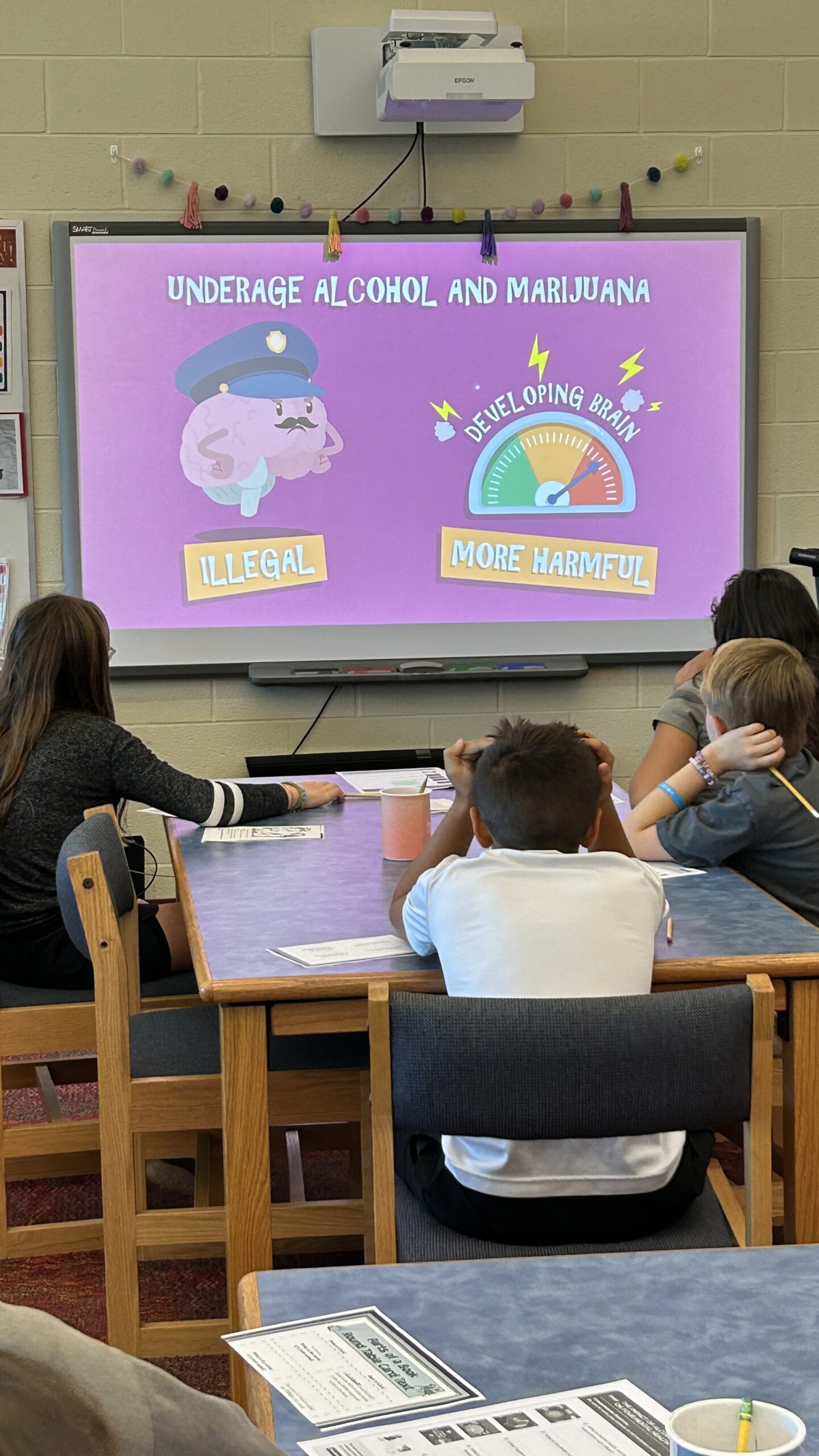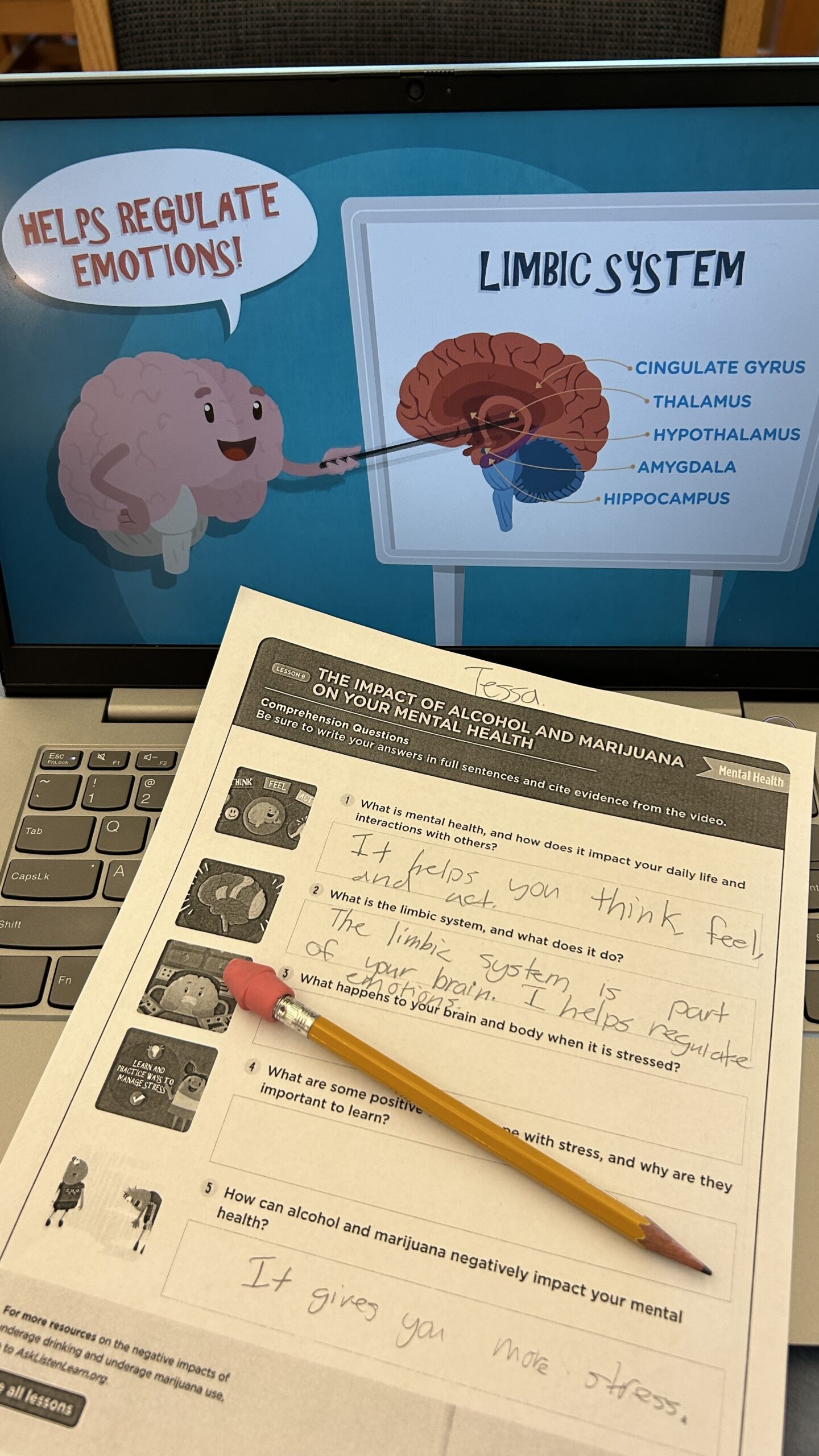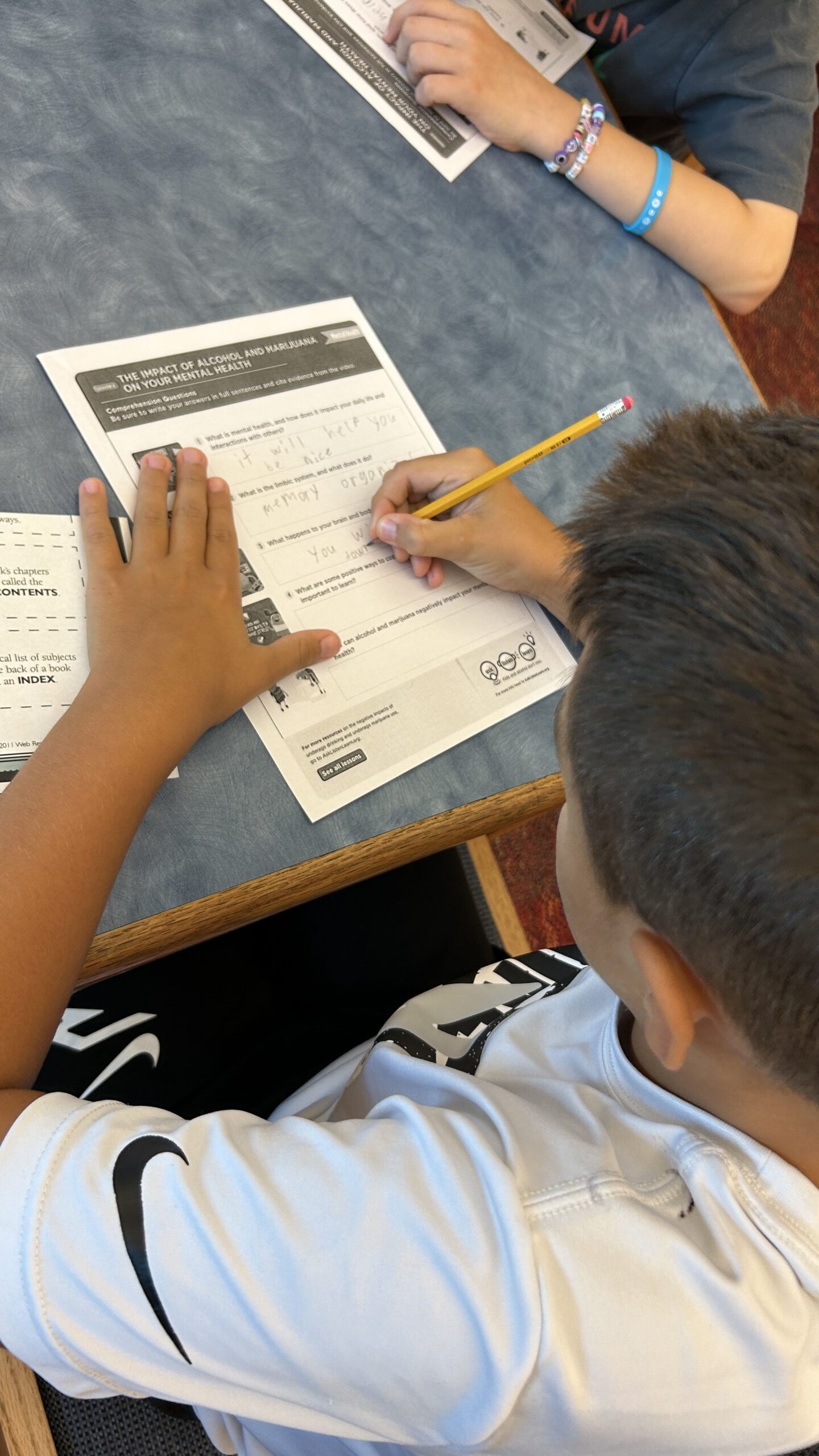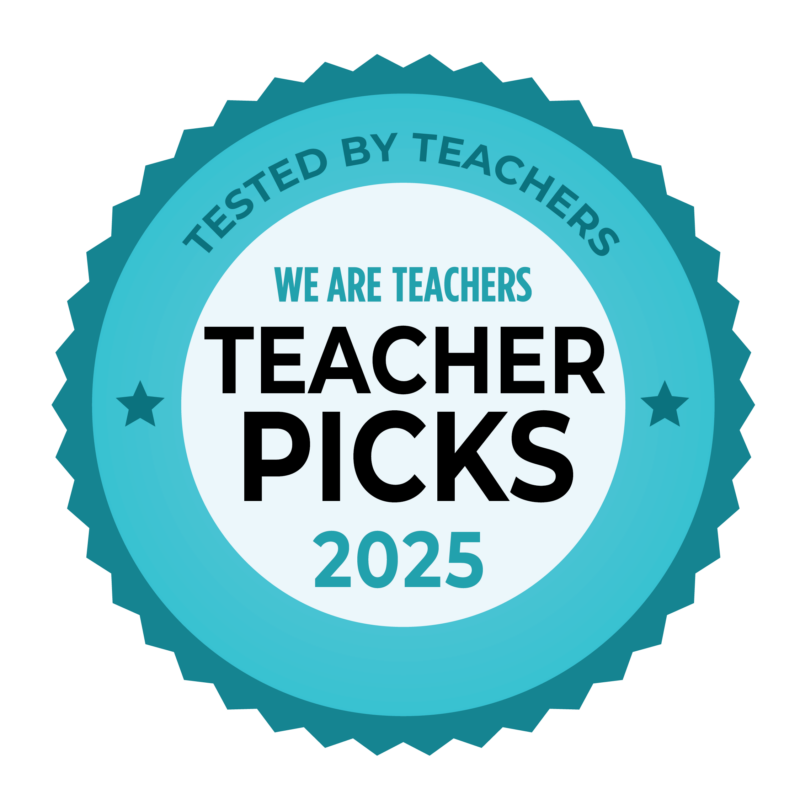Fifth and sixth grade ELA teacher and school librarian Amy Brownlee knows how powerful it can be when students connect with a lesson in unexpected ways. When she brought Ask, Listen, Learn‘s underage drinking and cannabis use prevention resources into her fifth grade classroom, what started as a simple lesson plan became a day full of engagement and learning. The lesson hooked her students immediately, sparking curiosity and conversation about decision-making and mental health.
The discussion flowed naturally into “teachable moments” about choices, peer pressure, and how alcohol and cannabis are not only illegal, but how they affect developing brains and mental health. Amy found that the combination of interactive content and science-backed lessons gave her students the confidence to ask honest questions and reflect on their own decision-making. Here’s her Teacher Picks review of Ask, Listen, Learn‘s lessons and resources.
What grade levels and subject areas do you think the Ask, Listen, Learn lessons are best suited for?
These lessons are great for health classes for 5th and 6th grade students. They would also work well for students in grades 4 through 8. They are engaging and invite participation.
How did you use these lessons in your classroom?
Mental health is such an important topic—and it’s connected to prevention education. It’s essential for teachers and counselors to give students the opportunity to talk about their mental health and stressors. Additionally, they need to be able to share how they deal with the pressures they face. Broaching this subject as a class lets students know that this is not a taboo subject and encourages them to talk about it. It makes them more likely to feel comfortable talking to a trusted adult about mental health struggles they may be facing.
How did your students react to the lesson?

Many students were not familiar with the term “mental health,” but they did have prior knowledge about techniques for relieving stress.
Students really responded to the opening activity, where they listed stressors in their lives and how they cope. It led to some excellent discussions. So many students wanted to share during the discussion that I extended the time for that part of the lesson and pushed some of the activities to a separate session. The kids had a lot to say, and I think anytime we can normalize talking about mental health, that’s a win-win.
The students really liked the animations in the video. One student said she had never seen a picture of a brain before and was curious. It gave me a chance to introduce the term “brain stem.” Then, I talked a bit about how the brain connects to the spine.
This lesson led to teachable moments that allowed me to take extra time for kids to share more specifics when they expressed curiosity. The lesson was definitely engaging and got kids talking and thinking.
How easy was it to use and implement in your classroom?
Ask, Listen, Learn‘s writers laid out the lesson plans very well. I love all the different resources like the video, comprehension questions, and vocabulary resources. The healthy coping strategy toolbox is an excellent way to get students to apply what they are learning to their lives.
What were the top two features you liked most about the Ask, Listen, Learn lesson?

I liked the variety of activities. It was helpful to have vocabulary support as there are a lot of scientific terms introduced in the lesson. I also loved the Kahoot! activity and how it could be played in a variety of ways: as a large group but also individually as a learning activity or in three different game modes.
What makes the Ask, Listen, Learn lesson special or unique compared to other mental health resources you’ve seen or used?
Ask, Listen, Learn focuses on neuroscience and talks about parts of the brain and their functions. It gives students science-backed reasons why alcohol and marijuana use are not effective ways to relieve stress and gives them tools to learn how to deal with stress in a healthy way, preserving their mental health. There are also parent components to send home so the students can continue these conversations with their families.
How do you plan to use Ask, Listen, Learn lessons again in the future?
These lessons are excellent for health classes to help students find healthy ways to deal with stress and learn about responsible decision-making. They would be very useful to counselors. Teachers can use them during morning meetings to cover important topics like peer pressure.
How would you sum up your overall experience?

Ask, Listen, Learn provides a comprehensive collection of resources that saves teachers time. It includes every component you would need, including discussion starters, comprehension questions, vocabulary activities, and a detailed lesson plan aligned with national educational standards. The video and gaming components captivate students, and the written resources help them connect the content to their lives. These tools are excellent for teaching vital healthy topics.
What else would you like other teachers to know about your experience?
The United States is currently experiencing a mental health crisis with children and young people. These lessons serve an important purpose in destigmatizing the discussion of mental health issues.
Watch Amy’s review of Ask, Listen, Learn lessons below:
Learn more at the Ask, Listen, Learn website.
Plus, read more about Ask, Listen, Learn‘s lessons and play their game here on We Are Teachers.



